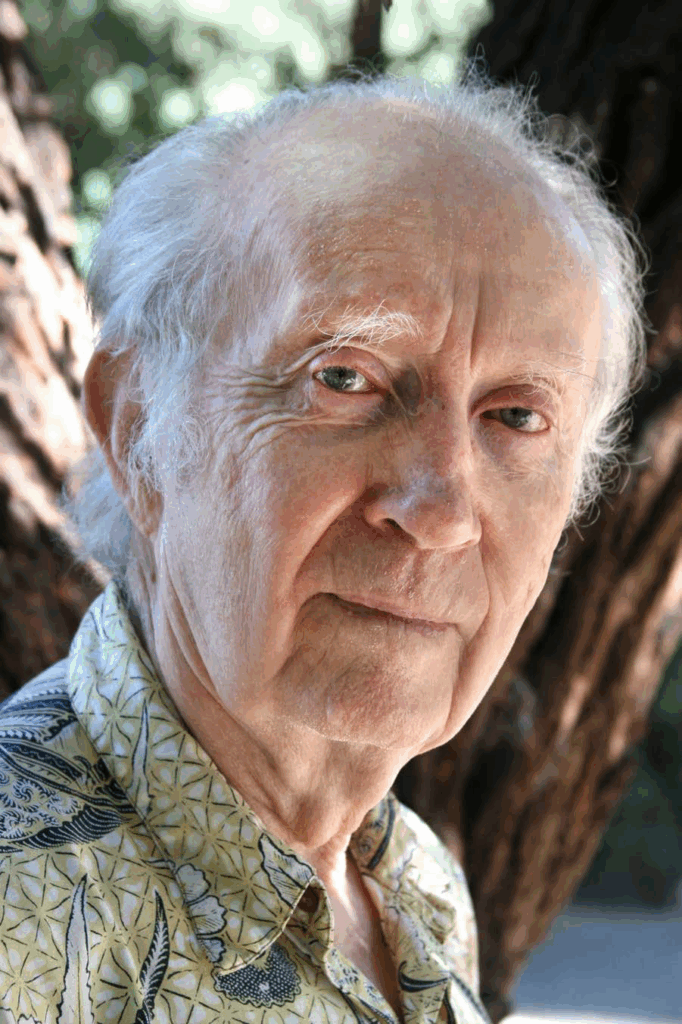Today’s author is Prince of Peace member, Carol Swanson.
Last Sunday we listened to the Spark story of Luke 24:13–35, referred to as The Road to Emmaus. Cleopas and his friend…felt very sad…. After a while, a stranger began to walk along with them…So they told him all about Jesus…”We hoped he was the one God promised would save the world.” “But then…he died on a cross.” The story made me think of the book our Process discussion group read in April, Salvation: Jesus’s Mission and Ours by John B Cobb Jr.

John B. Cobb Jr. was a theologian, philosopher, environmentalist, and considered one of the great scholars of process-relational thought and theology. He was most interested in the ecological interdependence, the web of interconnectedness in God’s universe. And so he was also interested in (and influenced) many disciplines, including theology, ecology, economics, biology, and social ethics (as Wikipedia article on Cobb says). He died recently, just 6 weeks short of his 100th birthday.
Salvation was his last book (he wrote over 50), a farewell, a description of our world’s major issues, and also of hope that there is much we can do for the kingdom of God, the “Divine Commonwealth” as John called it.
John Cobb, Jr. wrote in his Preface of Salvation:
I can state the thesis of this book quite simply. Jesus’s mission was to save his people from the Roman yoke. Most of those who shared that mission turned to military means, which Jesus saw to be self-destructive. So, the mission to save his people included saving them from their own proclivity to violence.
Saving his people from Rome and from themselves was the most inclusive mission possible at the time. To follow Jesus today is to adopt the most inclusive mission in our day. That is, to save the world from the self-destruction on which it now seems bent. Some of those who claim to share this goal offer programs that will speed the self-destruction. We need to save the people of the world from themselves as well as from the consequences of our multi-century crimes and mistakes.
Jesus’s method is more promising. To me, the call to Jesus’s disciples to save the world seems clear and simple. We need to stop serving wealth. We need to love our enemies. But I have not succeeded in making the argument so clear and simple
Still, I commend the book to the attention of anyone who wants to be a disciple of Jesus. I believe we are called to do our part in “saving the world.” If one out of every hundred professed Christians took that call seriously, despite the enormous obstacles, we would have a chance. We could work for that salvation in hundreds of diverse ways, according to our gifts and situations. But if we all recognized the contributions of our brothers and sisters in Christ, and supported one another, the consequences would be even more enormous than the obstacles. Perhaps this book can enable our calling to be a bit more widely heard. (pp1-2).
I hear an echo of Emmaus later in the book where John Cobb writes (pp133-134):
…Jesus failed in what he understood to be his chief mission. The people of Israel, as a whole, did not change in the way he thought required to prevent the destruction of Israel. They suffered the fate Jesus anticipated but hoped to prevent. If we are Jesus’s disciples, why should we suppose that we might fare better?
My answer is that although Jesus failed, he also changed history.
John Cobb ends his book with these words:
When I was a youth we used to sing that God has no hands but our hands, and no feet but our feet. In God’s own way, God is very powerful. But God’s power is radically different from what the word “power” usually connotes in human discourse. God has the power to empower us. All our power to do good derives from God. But God could not pick up the man left beaten by the roadside. It took a Samaritan. God cannot make speeches about ecological civilization. God cannot take part in demonstrations. God cannot write books. Because of God we can do these things and are called at times to do them. Let us expect of God only the kinds of things that God does, while taking our part by responding to God’s ever-renewed call. …
Receptiveness and responsiveness to God’s call always works for ecological civilization…. Some of us are called to develop and share the common vision. Others are called to give a cup of cold water to a thirsty stranger. Others are called to tell a joke. Others are called to express their love in a sexual embrace. Others are called to strive even harder in a race. Let us respect and love one another and put our hope in God’s weaving out of our small contributions a habitable planet, sensible ideas, and a humane society. (pp155-156)
When you rise each morning, ask, “Dear God, show me how to love the world today.”
Note– Salvation is in our PoP library.